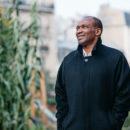Meles’ death sparks succession planning as El Cid rides again – By Mike Jennings


The late Meles Zenawi, whose death has sparked succession plans in Ethiopia and among those countries who rely on his regime for military support.
The death of Ethiopian Prime Minister Meles Zenawi was announced this morning, following complications arising after a long illness. Yet for weeks now, rumours have been flying around the internet that Zenawi had died in an overseas hospital, and that this news was kept quiet whilst the fierce succession battle took place. Whether true or not (and it would certainly not be the only time in recent months that the death of an African leader had been kept quiet until the struggle for succession had been won), the political elite in Ethiopia has almost certainly been seeking how to ensure a smooth transition since Zenawi’s last public appearance in mid-June.
There are a number of interesting questions that emerge from this, for Ethiopia itself, for the international community, and for watchers of African politics and leadership more widely.
- Will the succession prove to be smooth and stable? The constitution says parliament should choose the successor. But does anyone really expect this weakened institution to be given that authority? The struggle has likely already taken place and parliament will be asked to confirm that decision. If it hasn’t, this opens up real concerns over stability whilst a succession battle takes place. Ethiopian growth may still be relatively strong, but it is suffering from high inflation. For most Ethiopians, high inflation is a worse curse than lower economic growth, and this could foster social tensions. Tensions are growing between the country’s Muslim population (around one-third of the total) and state authorities following a crackdown on Muslim protestors over the summer. Could this provoke wider ethnic and religious tensions across the country? How will the new prime minister deal with such tensions? Will there be an opening up of the political space to the opposition following the transition? Probably not. For there is not likely to be much real pressure by external powers to address the democratic deficit with stability being seen as the main priority.
- The political elite in Ethiopia is not the only group with a vested interest in an orderly succession. The international community has largely ignored, or downplayed, the government’s poor governance record due to Zenawi’s clever positioning of his regime as a major backer of the war against radical Islamic violent movements (much as Museveni has done in Uganda, which also successfully steered attention away from his own governance record). Ethiopia’s deep engagement in neighbouring Somalia means the global north will be determined that the new government retains its commitment to this effort, and as a result will be far less concerned about the democratic credentials of the transition or the new leader
- Finally, are we seeing the emergence of an El Cid policy in African politics?* Only four months ago, the death of Malawian president Bingu wa Mutharika was delayed for several days as the succession battle played out in private. After months of rumours of his death, former Nigerian president Yar-“˜Adua spoke by phone to the BBC to show he was still alive (although he could not convince that he was still in effective power). Africa is not alone in this, of course (official silence over the health of several Latin American leaders springs to mind). But whilst leaders cling as much power to themselves as possible, and seek to ensure no clear successor emerges who might challenge them whilst they are still in power, El Cid will continue to ride.
*El Cid was a Moorish leader in Medieval Spain. Legend has it that during a siege of Valencia – during which El Cid died – his body was fitted with armour and hoisted upon his horse in order to bolster the morale of his troops.
Mike Jennings is Senior Lecturer in Development Studies at SOAS and Chair of the Centre of African Studies.
This piece was originally published on Mike’s blog http://mikejennings101.wordpress.com/






[…] Meles’ Death Sparks Succession Planning As El Cid Rides Again – Africanarguments.org […]